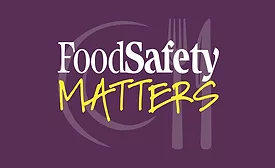Home » Keywords: » food contact materials (FCMs)
Items Tagged with 'food contact materials (FCMs)'
ARTICLES
Never miss the latest news and trends driving the food safety industry
Newsletters | Website | eMagazine
JOIN TODAY!Copyright ©2026. All Rights Reserved BNP Media.
Design, CMS, Hosting & Web Development :: ePublishing










